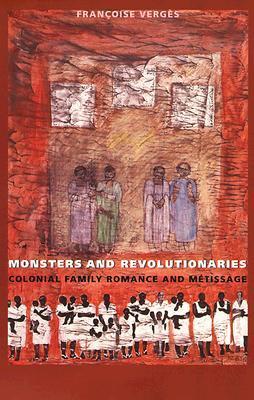
In Monsters and Revolutionaries Françoise Vergès analyzes the complex relationship between the colonizer and colonized on the Indian Ocean island of Réunion. Through novels, iconography, and texts from various disciplines including law, medicine, and psychology, Vergès constructs a political and cultural history of the island’s relations with France. Woven throughout is Vergès’s own family history, which is intimately tied to the history of Réunion itself. Originally settled by sugar plantation owners and their Indian and African slaves following a seventeenth-century French colonial decree, Réunion abolished slavery in 1848. Because plantation owners continued to import workers from India, Africa, Asia, and Madagascar, the island was defined as a place based on mixed heritages, or métissage . Vergès reads the relationship between France and the residents of Réunion as a family France is the seemingly protective mother, La Mère-Patrie, while the people of Réunion are seen and see themselves as France’s children. Arguing that the central dynamic in the colonial family romance is that of debt and dependence, Verges explains how the republican ideals of the French Revolution and the Enlightenment are seen as gifts to Réunion that can never be repaid. This dynamic is complicated by the presence of métissage, a source of anxiety to the colonizer in its refutation of the “purity” of racial bloodlines. For Vergès, the island’s history of slavery is the key to understanding métissage, the politics of assimilation, constructions of masculinity, and emancipatory discourses on Réunion.
Author
Françoise Vergès (born 23 January 1952) is a French political scientist, historian, film producer, independent curator, activist and public educator. Her work focuses on postcolonial studies and decolonial feminism. Vergès was born in Paris, grew up in Réunion and Algeria, before returning to Paris to study and become a journalist. She moved to the US in 1983, studying at the University of California, San Diego and Berkeley.